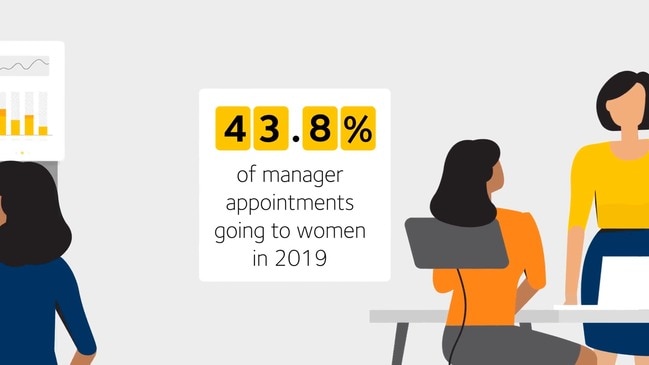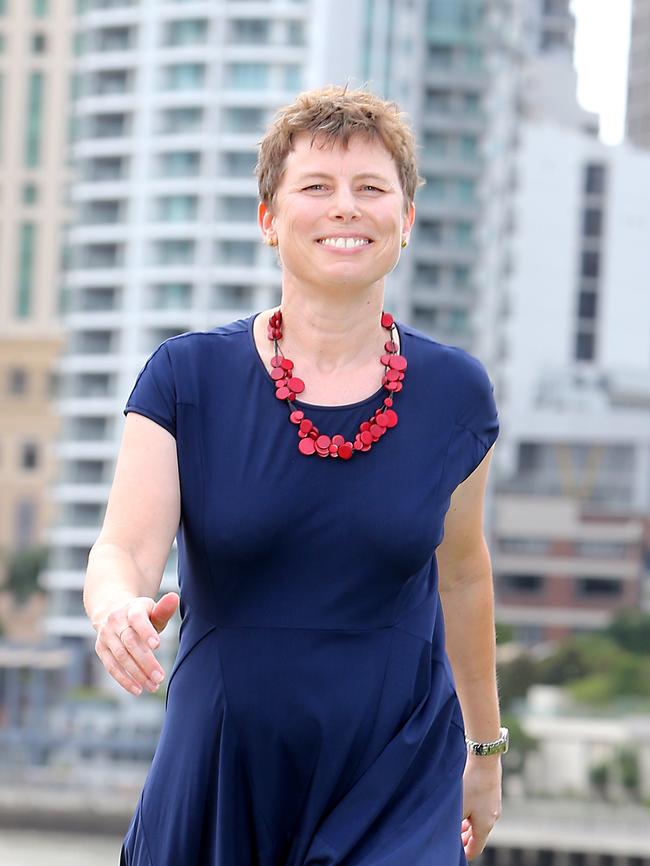WGEA reveals state of equality in Queensland
Queensland employers are lagging behind the nation on most key gender equality indicators, with the gender pay gap worse than the national average.

QLD News
Don't miss out on the headlines from QLD News. Followed categories will be added to My News.
QUEENSLAND’S gender pay gap is one of the worst in the country at 23.4 per cent, a “terrible result” in comparison with the Australian average of 20.8 per cent.
New data from the Workplace Gender Equality Agency reveals the only areas where Queensland is better than the national average is for workplace domestic violence policies and the amount of female managers.
Workplace Gender Equality Agency shows gender pay gap at $25k
The state was more than five per cent behind the national percentage for workplaces, with gender equality policies or strategies at 70.1 per cent of workplaces, up 2.2 percentage points from 2018.
WGEA director Libby Lyons said the results in Queensland were “pretty disappointing”.
“The data shows Queensland employers are lagging behind the national average on most of the key gender equality indicators,” she said.
“The state’s total remuneration gender pay gap has actually gone up by 0.9 percentage points to 23.4 per cent, which is a terrible result, and only 40 per cent of Queensland organisations did a gender pay gap analysis, compared to 44.7 per cent nationally.”
But she said it was pleasing Queensland had performed better than the national average in some areas.
Of the state’s employers which report to the agency, 61.5 per cent have a policy or strategy on family and domestic violence, which is 1.1 percentage points above the national average, she said.
“And 42 per cent of Queensland’s managers are women, which compares favourably to the national average of 39.4 per cent, she said.
“My message to Queensland employers is that you have to take action now. We will not solve gender inequality with a top-down or bottom-up approach.
“We must look to systemically create change at every level of every organisation.”
The Queensland data comes after The Courier-Mail last week revealed men still take home more than $25,000 a year more than women, and gender balance stalls at the top, with female CEO numbers stagnant, according to the nation’s gender equality watchdog.

Suncorp banking and wealth CFO Erin Strang said she had been able to work her way to the top while maintaining a flexible work arrangement, with a better work and life balance helping improve productivity.
She said 84 per cent of Suncorp employees took up flexible work arrangements, which helps bring about gender equality.
“I think in terms of the progression of women in the workforce, certainly flexible working arrangemetns are important for both genders.”
“What Suncorp are doing, and others organisations could do, is make it normal at any level, and it’s the difference of diversity that you’re able to attract, because they see you value them more than the output at work, it’s building it into the way we do things.”
She said the gender pay gap was fuelled by a range of cultural issues that determined the way work and contribution were valued, but change was about challenging those conversations.
“How can we make sure, whether it’s a boy or girl, they have choice and there’s not gender-type roles and there’s roles that deserve to be paid significantly because they’re seen as gendered?”
Ms Lyons said the only significant improvement this year was that now 62.2 per cent of reporting employers had a policy or strategy to help employees who are victims of domestic and family violence.
“It is particularly poignant to talk about it today on the International day of Elimination of Violence Against Women,” she said.
Ms Lyons urged employers to keep working towards closing the gap with, saying the nation was still on track to reach an “elusive 50/50 by 2030”.


